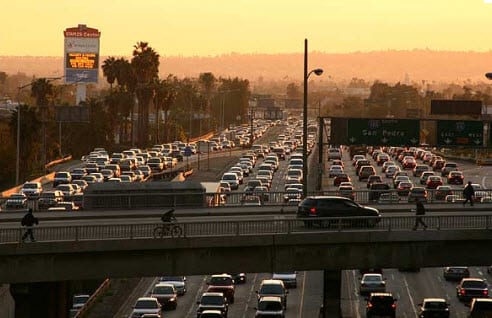Toyota grows bullish on hydrogen fuel cells
May 29, 2014Automaker has high hopes for fuel cells and their use in clean transportation
Japanese automaker Toyota has become quite confident that hydrogen fuel cells will be the future of transportation. The company’s confidence in these energy systems has been recently bolstered due to new initiatives being launched in California. The state is one of the auto industry’s most favored markets and often serves as the testing ground for new vehicles that are equipped with innovative technology. California is currently one of the U.S. leaders in terms of renewable energy.
California investing nearly $50 million in the development of comprehensive fuel infrastructure
California is investing more than $47 million in its hydrogen fuel infrastructure. This money will be used to build 28 new fuel stations throughout the state. Currently, 10 hydrogen fuel stations are operating in California, with another 16 currently under construction or in development phases. State officials believe that California’s fuel infrastructure will be able to support more than 10,000 fuel cell vehicles by 2015. This has made Toyota quite “bullish” with their faith in fuel cells.
Infrastructure is needed in order for fuel cell vehicles to find success
Infrastructure is currently one of the most significant challenges facing clean transportation today. There is no comprehensive infrastructure that is capable of supporting fuel cell vehicles, which makes these vehicles somewhat unattractive to consumers. Battery electric vehicles have found a strong degree of infrastructure support, but these vehicles are often criticized as being inefficient. Fuel cell vehicles offer more options to consumers interested in clean transportation, but without infrastructure support they will not likely find any degree of success.
Some automakers will wait until a fuel infrastructure takes form before releasing their fuel cell vehicles
Toyota has been investing in the development of California’s hydrogen fuel infrastructure and believes that the state will have a suitable fuel network in place by 2015. The automaker has plans to commercialize its fuel cell vehicles beginning in 2015, but other companies are opting to wait longer to release their own models. Some automakers have little faith in current fuel infrastructure endeavors and intend to wait until an expansive fuel structure is established before releasing a new generation of clean vehicles.


 With over 15 years of reporting hydrogen news, we are your premier source for the latest updates and insights in hydrogen and renewable energy.
With over 15 years of reporting hydrogen news, we are your premier source for the latest updates and insights in hydrogen and renewable energy.